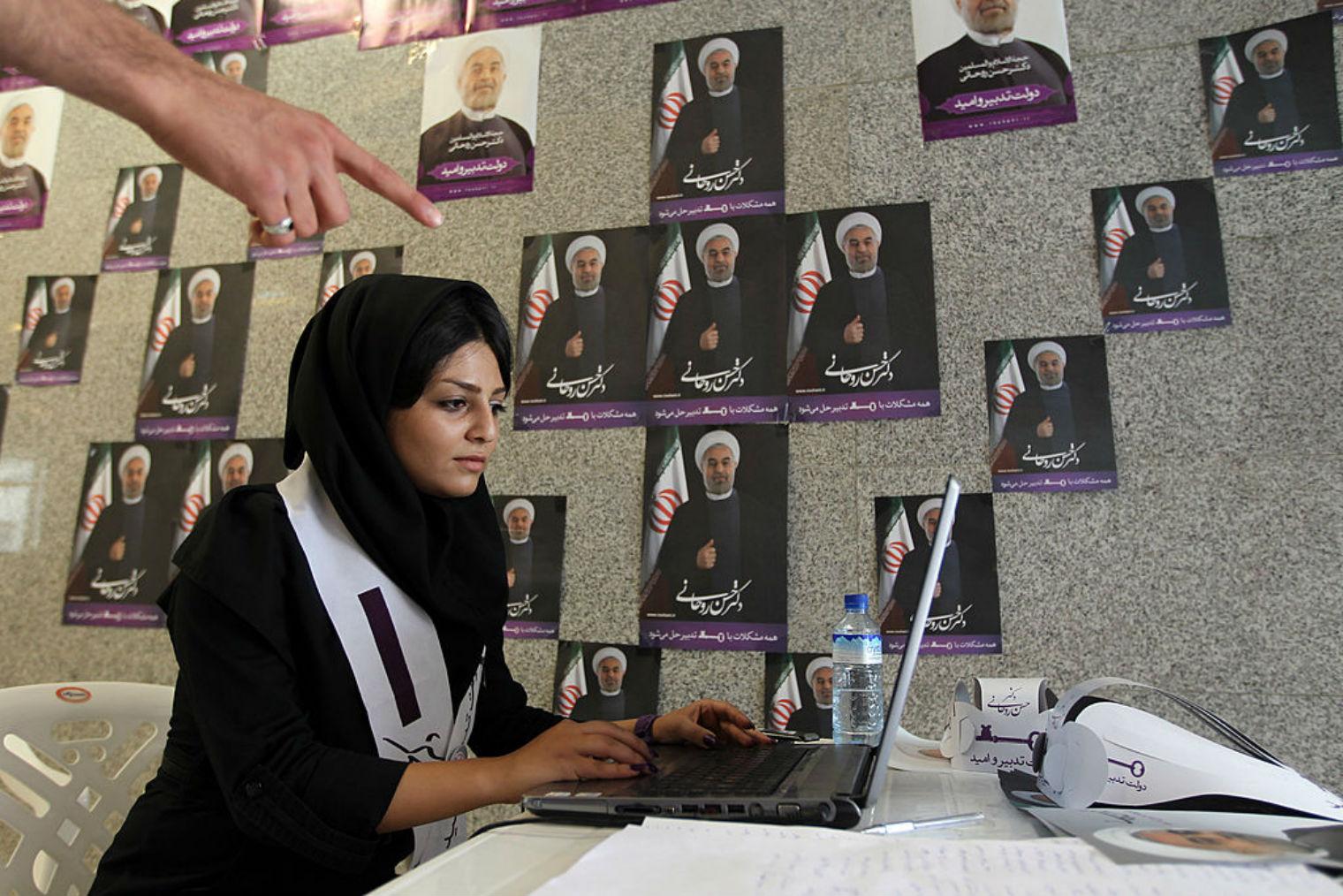Why it doesn't matter to the UK whether President Rouhani or a new hardliner wins the Iranian elections
The British Government has remained disappointingly silent on the case of Nazanin Zaghari-Ratcliffe, a London mother being held on spurious charges in an Iranian jail. This shows how far our policy of appeasement has gone


A nasty “hardliner” – known for being a member of the 1988 “Death Commission” which oversaw the massacre of thousands of political prisoners – has just thrown his hat into the ring in the Iranian elections.
He poses a threat to the supposedly moderate President Rouhani (who bears more than a passing resemblance to Michael J Fox’s dad in Teenwolf – a werewolf, for sure, but a relatively cuddly one).
In the run-up to 19 May, the press will be teeming with analyses of the merits of the rivals for the role of president in the Islamic Republic, and the consequences each might herald.
The painful truth is that it really doesn’t matter – in fact, recent history proves that the struggle in Iran is not about “hardiners” versus “reformists”. A better way of looking at developments would be to see it as a struggle between hardliners and reactionaries.
All Iranian politicians are hardliners – that is, they subscribe the Khomeinist principles of Islamic Republic (Ayatollah Khomeini toppled Iran’s monarch in 1979 and remains today the single biggest inspiration to Islamists across the world).
Twenty years ago, as New Labour was promising things could only get better in the UK, Mohammad Khatami, who like Blair won a landslide victory, was doing the same – he was the great white hope of a generation of young Iranians whose children are now growing up in a country recently described by the US as “the world’s biggest state sponsor of terrorism”. And guess what? That state’s power is presently more awesome than ever.
Iran is a backer of Hamas and Hezbollah and has been key in keeping Bashar al-Assad in position in Syria this year, though Donald Trump’s attack on a Syrian airbase has, if nothing else, bruised Iran’s imperial tentacles.
But to see why it doesn’t matter who is elected president in Iran this year, we need look no further than the BBC’s Today programme.
A broadcast it made last Monday suggests that the BBC takes its cue on reporting on Iran from the Foreign Office which, along with the Lord Lamont-led British-Iranian Chamber of Commerce, at the moment is dancing with joy at revived ties.
On 3 April, the Today programme marked a year since London mother Nazanin Zaghari-Ratcliffe was arrested in Iran, separated from her baby daughter, forced into solitary confinement, refused medical attention and largely ignored by the UK Government, which, to the astonishment of her husband, has so far failed to publicly condemn her five-year prison sentence under dubious charges.
Today did not bring in any Foreign Office officials or even the Mayor of London – who invited thousands of Iranians to Trafalgar Square last month – nor did it include the voice of Tulip Siddiq, a vocal critic of Government inaction in Nazanin’s case. Instead, the producers in their wisdom invited a spokeswoman from Nazanin Zaghari-Ratcliffe’s employer Thomson Reuters Foundation, the media charity.
And the key question she faced didn’t concern the British Government’s silence surrounding Nazanin’s detention but whether or not Nazanin really was a spy, as Iran has insisted she is.
One of the presenters responded to my criticism raised in an email by suggesting I should try to contact Boris Johnson as “he won’t talk to us”, as if Boris were the only person who could be challenged on this issue. Their failure to fully investigate the case or to more fastidiously target Government ministers in their analysis felt like a betrayal.
It’s hard not to feel like the BBC was trying to avoid rocking the boat with Iran, just as our key governmental figures have been doing. And that summarises exactly why it doesn’t matter whether Rouhani or his opponent wins the May elections. The UK is already tiptoeing around the state, and trying its best to appease and ignore. This will continue, no matter what the outcome – and no matter whether a British citizen is being held on spurious charges in its prisons or not.

Join our commenting forum
Join thought-provoking conversations, follow other Independent readers and see their replies